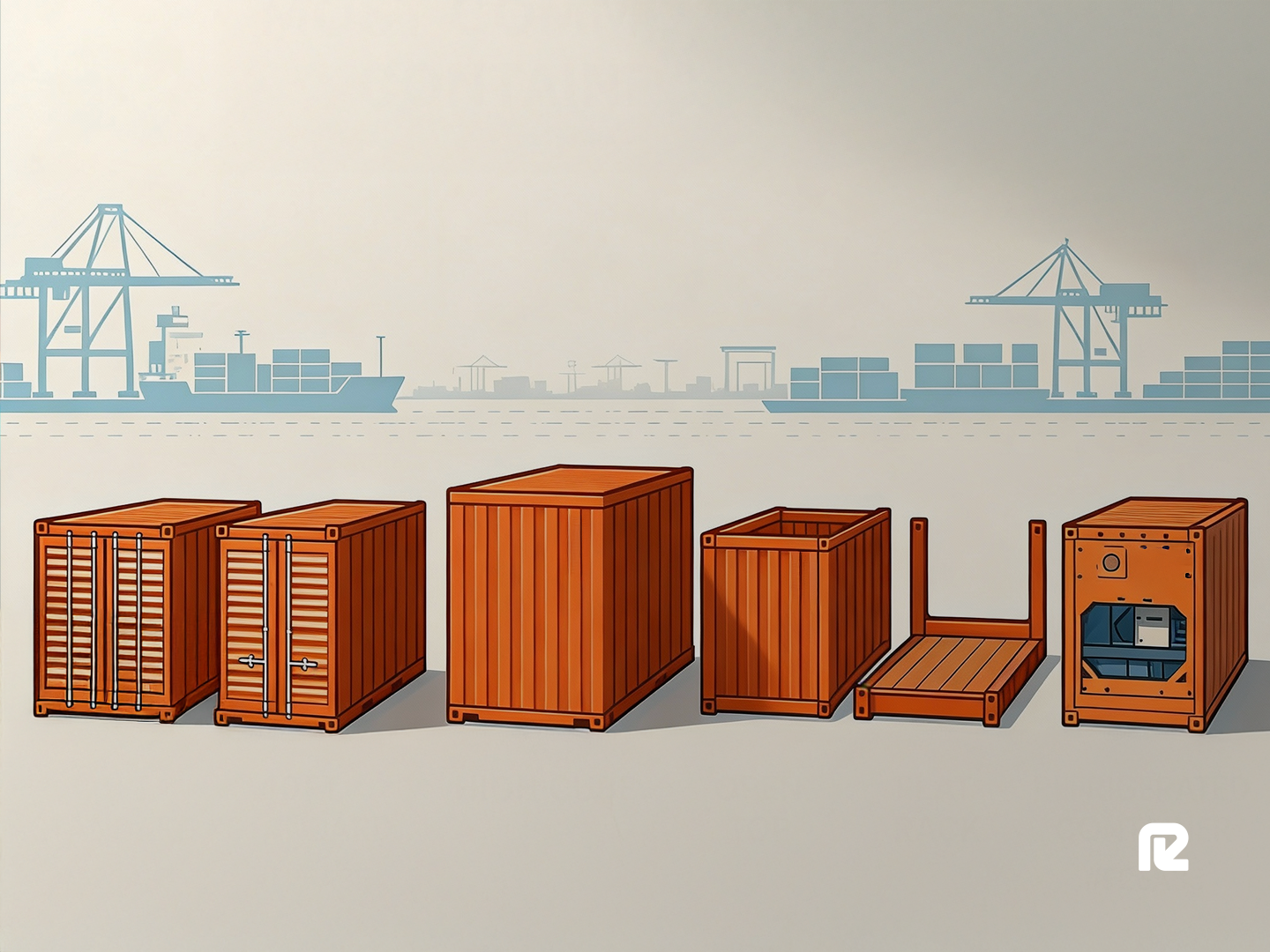Freight Brokers vs. Freight Forwarders: A Comprehensive Overview


Many companies often dive into shipping partnerships without thinking deeply about the types of services they truly need. Understanding the difference between a freight broker and a freight forwarder can save your business a lot of stress in the long term. While their roles may seem similar, they serve very different functions, and choosing the wrong one can create serious supply chain issues, including unexpected costs, delays, and compliance complications.
This guide will clearly break down exactly what freight brokers and freight forwarders do, how they differ, and most importantly, how to choose the right partner depending on your specific business needs.
What Is a Freight Broker, and What Are Their Responsibilities?
In basic terms, a freight broker is a type of middleman that sits between your business and shipping carriers, organizing transport services for your products to get to where they need to be. Typically, a freight broker doesn’t own or run warehouses or trucking services themselves, but they have access to a network of carriers within that logistics landscape.
Freight brokers take over these responsibilities for a company:
• Negotiate shipping contracts and rates
• Provide clients with quotes
• Book orders with carriers
• Finding available capacity
• Coordinate pickup and delivery schedules
• Foster strong relationships with reliable carriers
• Monitor shipments
Freight brokers have a wealth of industry connections and market knowledge to solve transportation challenges and logistics, acting as a bridge between businesses and carriers.
Pros of Working with a Freight Broker
Below are some of the main advantages that working with a freight broker can bring:
Cost Savings
The main task of a freight broker is to leverage their relationships with multiple carriers to help with negotiation efforts, leading to competitive rates. Because freight brokers are able to negotiate with several different shipping companies at once, they can often achieve much better pricing than going direct, often achieving savings of up to 15%; this is especially because they work on fostering strong, trustworthy relationships.
Logistics Management Convenience
Freight brokers take over a lot of the heavy lifting for their clients that would otherwise need to be organized in-house. This includes finding shipping capacity during peak transport seasons, maintaining relationships with carriers, and tracking shipments. Using a freight broker, it frees up a lot of time for the internal team to focus on other core tasks, instead of taking up time chasing down shipments or trying to find an affordable rate.
Industry Expertise and Insights
A wealth of experience comes with working together with a freight broker service. Because they are well-versed in the shipping and logistics industry, they understand nuances like seasonal fluctuations in terms of capacity and can therefore plan ahead for the team. As well as this, brokers also understand the huge difference that regional pricing and changing regulations can make. This expertise helps avoid costly mistakes and optimizes strategies in shipping over time.
What is a Freight Forwarder, and What are Their Responsibilities?
Although a lot of the time the terms ‘freight brokers’ and ‘freight forwarders’ are used interchangeably, there are stark differences between the two.
A freight forwarder is a partner responsible for organizing and coordinating the movement of their clients' products, from their origin to their destination, on behalf of shippers. Typically, a freight forwarder will take on a lot more responsibility and task management than a freight broker; they act as the shipper of records for their clients' goods. You can think of them as a partner that touches on almost every aspect of the logistics process.
Whereas a broker mostly deals with relationships and negotiations, freight forwarders are mainly responsible for the following:
• Handling multiple modes of transport, including air, sea, road, and rail.
• Managing all documentation, including customs clearance.
• Negotiating terms of carriage.
• Booking cargo space.
• Managing insurance of goods.
• Consolidating and deconsolidating shipments.
• Tracking shipments.
• Arranging appropriate packaging and transport.
• Coordinating shipping operations.
• Warehousing and inventory management.
• Keep up with regulatory requirements in international trade.
Unlike freight brokers, freight forwarders usually do take possession of their client's goods and take responsibility for their safe delivery, as well as being the single point of contact, often managing complex, multi-leg, international shipments.
Pros of Working with a Freight Forwarder
There are many advantages working with a freight forwarder can bring, mainly because of the level of responsibility a forwarder will take on, especially with international shipments or more complex logistics requirements.
Having a Global Logistics Network
Having a global network of carriers, customs brokers, and logistics providers is one of the main benefits of working with a freight forwarder. Having this network means they can offer door-to-door services, even across borders, and can take almost all the management away from their clients from initial pick-up to final delivery.
Customs and Regulatory Expertise
It goes without saying that there are many complex elements involved with international shipping that include complex and changing documentation requirements and customs declarations. Dealing with these complications is part of the day-to-day for freight forwarders and part of their standard service offerings. This massively reduces the risk of delays and penalties compared to when businesses have to deal with all this alone. A huge part of freight forwarding is staying ahead of the current and changing regulations, making sure to minimize any surprises that might come up, and making sure to advise their clients on any issues that might come up before they become a problem.
Comprehensive Service Offerings
On top of the standard level of services that we’ve discussed freight forwarders offer, they also have extra value-added services that might include cargo insurance, warehousing space and management, inventory management, and supply chain consulting. The aim of this is to choose the best package for your business with the aim of simplifying your logistics operations while providing end-to-end visibility.
Similarities and Main Differences Between Freight Brokers and Freight Forwarders
Despite their different roles, brokers and forwarders do share some common ground.
Overlapping Services
Both freight brokers and freight forwarders act as intermediaries in the logistics chain; they both:
• Negotiate rates
• Coordinate shipments
• Provide tracking information
Depending on the specific company, some larger freight brokers may offer a few forwarding services, while some forwarders can work on brokerage services, although it is more common that they stay as separate entities.
Shared Goals
Both freight forwarders and freight brokers have the same goal of getting clients' goods from point A to point B safely, on time, and at a reasonable cost, while focusing on optimizing supply chains and taking over logistics responsibilities from their clients.
The difference between the two comes mostly down to scope and complexity.
Brokers focus on arranging and coordinating transportation, negotiating rates, and maintaining relationships with shipping companies to secure the most affordable deals. Their pricing is typically quite straightforward, usually tied directly to the cost of transportation.
Forwarders offer a wider group of logistics services, working with a broader network of transportation links that usually cover sea, air, road, and rail carriers. The pricing of forwarders is usually bundled together, offering a flat rate plus extra costs for various services like documentation, customs clearance, and handling fees.
Compared to brokers, the relationship with a freight forwarder will be more consultative, with much more coordination and complexities going on, usually with ongoing and open communication.
Choosing the Right Partner: Freight Broker vs. Freight Forwarder
Deciding between working with a freight broker or a freight forwarder depends mainly on the business needs and future growth plans, as well as the types of products and shipping requirements. Below are some factors to consider:
• If your business is mostly shipping domestically, a freight broker that can negotiate rates and work with shipping partners will most likely be the best fit.
• If importing from overseas, shipping internationally, or looking to expand into new markets, a freight forwarder with their comprehensive services will be a good fit.
• There’s also the consideration of logistics capabilities within the business. Companies with limited logistics resources will benefit greatly from the approach of a freight forwarder.
Making the Right Choice for Your Business
Choosing between a freight broker and a freight forwarder is a strategic decision that can shape the future of your supply chain efficiency, cost structure, and ability to scale. While both play valuable roles in the movement of goods, the key is aligning their capabilities with your specific shipping needs. Freight brokers excel at fast, cost-effective domestic coordination, while freight forwarders provide the infrastructure and expertise for more complex, global logistics.
Contact Reload Logistics to find out how their freight forwarding services can benefit your business for the future.
Categories






